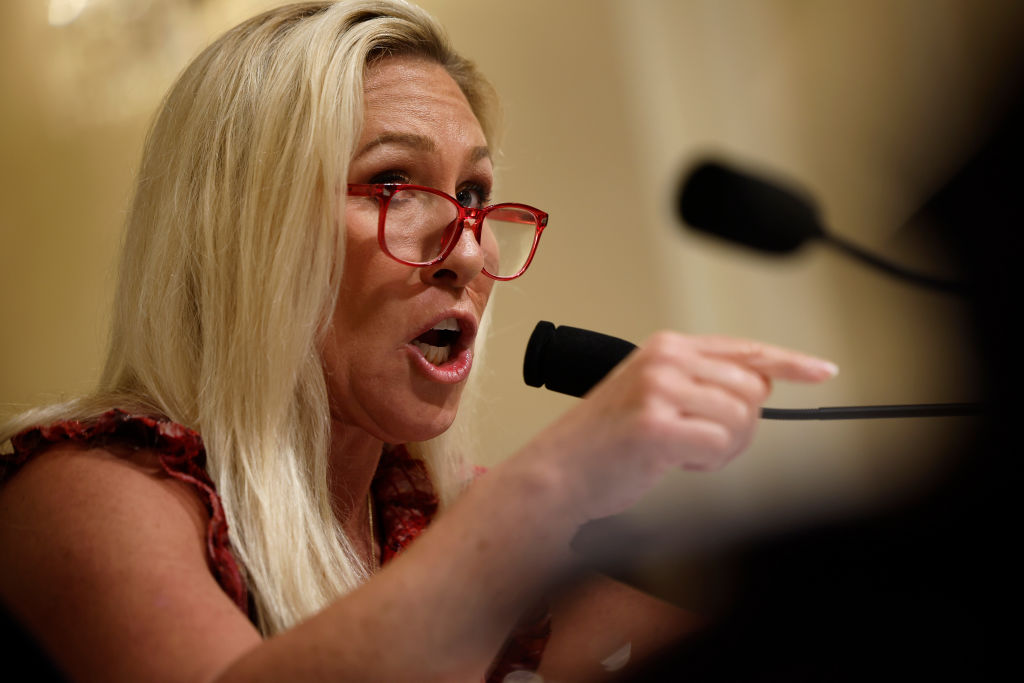HARTFORD, Conn.— Over the years, Eric Fischer had grown suspicious of whether he was really the father of his youngest daughter. So he secretly got a sample of the girl’s hair, grabbed one from his own head and sent them to a lab for DNA testing.
Sure enough, he was right. The girl was the product of an affair between Fischer’s wife, Pamela Tournier, and her business partner, Richard Zollino.
Now, five years later, the State Supreme Court has ruled that Fischer can proceed with a lawsuit demanding that the girl’s biological father pay him $190,000 — half the cost of raising her. She’s now a young woman of 19.
High-level court rulings allowing cuckolded men to seek such reimbursement are rare, though DNA tests are increasingly accessible to suspicious fathers. And when those suspicions are correct, the idea of repayment raises complicated questions about what’s best for the child caught in the middle.
It’s not clear whether Alicia Fischer knows the truth, though a ruling from 2009, when she was a minor, indicated she didn’t know at the time. The case, however, has been a matter of record for years, and the court’s decision this week was released along with the names of all the parties involved.
The nature of any current relationship with Zollino, who accompanied Fischer and Tournier home from the hospital after Alicia’s birth and attended childhood recitals, or the father who raised her isn’t clear. She, her mother and Zollino didn’t return phone messages this week. Fischer, senior director of national accounts for UnitedHealthcare, declined to comment, as did Zollino’s lawyer.
“Obviously this is a horrible situation for that child to be put in,” said Preston Britner, a professor of human development and family studies at the University of Connecticut.
Fischer’s lawyer, Gerald Sack, declined to comment on details of the case but said he was pleased with the court’s decision.
“We’re now going to study the ruling to see what the next step is,” he said.
Fischer and Tournier married in April 1986 and had two daughters. Tournier gave birth to the older daughter, Olivia, in December 1986, and Alicia in December 1992, court records show. They divorced in 2007.
Tournier, of Redding, and Zollino, a Ridgefield man who’s married and has an adult son, worked together in the late 1980s and started Focus-Productivity Inc., a consulting business, in Ridgefield in 1993, according to court documents. State records list Zollino as the company president and Tournier as vice president.
After Alicia was born, Fischer said in court documents, Tournier invited Zollino to join them on the ride home from the hospital. On his own, he also attended eight or nine of Alicia’s orchestra recitals and attended a summer camp musical in which the girl had a role, Zollino has testified.
Fischer’s lawsuit said his suspicions about Alicia’s paternity grew over the years, partly because she didn’t look anything like her sister.
With DNA testing growing widely available — these days, Wal-Mart even sells a kit for less than $30 — Fischer took matters into his own hands and sent the hair samples to a lab. Bingo.
Fischer, 62, of Middletown, divorced Tournier and filed the lawsuit against Zollino. A subsequent court-ordered DNA test showed a nearly 100 percent probability that Zollino was the girl’s father.
Zollino testified he had an affair with Tournier around the time Alicia was conceived, and Tournier testified in 2007 during her divorce that Zollino was the girl’s father.
A now-retired state Superior Court judge, Clarence Jones, decided in favor of Zollino in December 2009, saying the best interests of the child were more important than the financial interests of Fischer and citing similar court rulings in other states.
“Alicia is now nearly an adult and has developed a relationship with (Fischer), understanding him to be her father throughout her life,” Jones wrote. “If she were to learn that the plaintiff is not her biological father, this information could potentially be extremely damaging to Alicia’s well-being.
“This court places the utmost importance on the best interests of the child and, as such, it would be contrary to public policy to permit the plaintiff in this case to dispute his paternity of Alicia at such a late date.”
Jones went on to cite court rulings in similar cases in other states, including Alaska, Nebraska, Nevada and California, where men weren’t allowed to sue for damages after learning they weren’t their children’s biological fathers.
The reasoning in all those rulings, he wrote, “is founded on the public policy that the best interests of the child in receiving the support that he or she needs is more important than making a grown man financially whole for expenses that he incurred under a mistaken belief that he was the child’s biological father, when doing so could potentially harm the child.”
In Nebraska, Robert Day Jr. sued his former wife, Robin Heller, after he learned he was not the biological father of their son born in 1987. Day sought damages for fraud and emotional distress, but the state Supreme Court rejected his lawsuit in 2002, citing public policy.
The Nebraska court said that when forced to choose between allowing a case “that carries all the detrimental effects of a custody battle or asking a plaintiff to go uncompensated for his emotional pain, we choose the latter.”
The shock would be comparable to teenagers or adults discovering they were adopted, something that can be traumatic for all involved, said Britner, the family studies professor. Children can have feelings of abandonment by their biological parents and identity crises.
Children may also be worried because “that dad you thought was dad is now rightly very upset and might not be there for you,” Britner said.
Still, Fischer’s attempt to make his wife’s business partner pay was revived this week, when the state Supreme Court overturned Jones’ ruling in a 7-0 decision released Monday.
Connecticut Chief Justice Chase T. Rogers wrote in this week’s Supreme Court ruling that Jones’ decision was flawed. Rogers said the court questioned whether Alicia would be harmed by Fischer’s pursuit of reimbursement, because Fischer and Tournier have already said in public divorce documents that Zollino was the girl’s father.
Rogers wrote that denying Fischer “a right to seek reimbursement in order to protect the younger daughter from emotional harm likely would be an exercise in futility.”
Justices ordered the case returned to Middletown Superior Court for further proceedings. Fischer’s case will have to be assigned to a new judge because of Jones’ retirement.
SEE ALSO:
















